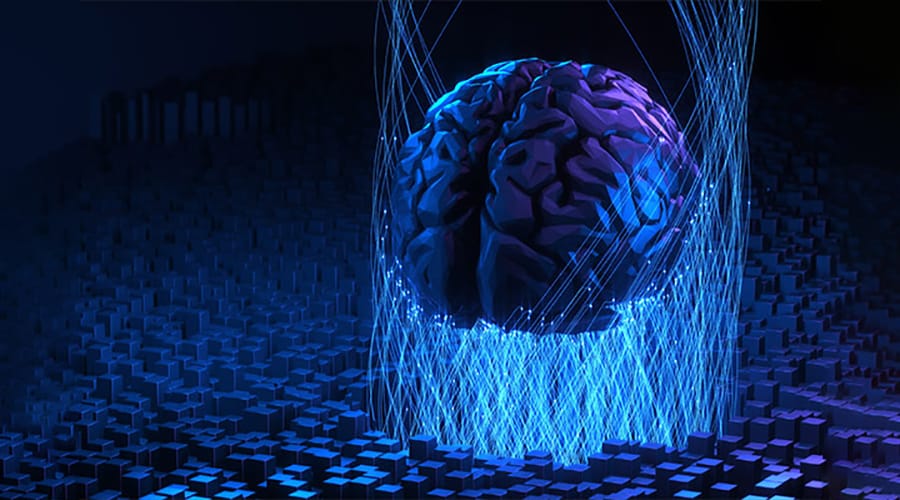Source – https://www.analyticsinsight.net/making-data-center-smart-how-artificial-intelligence-helps/
As data centers become enabler to a nation’s economy, employing artificial intelligence can yield higher benefits
Artificial Intelligence (AI) plays a pivotal role in capturing, processing, and analyzing data at much faster rate than ever, today! It is also becoming more efficient and useful to incorporate data elements and managing data centers.
With data becoming a pre-requisite to sustain almost every business operation for insight and business results, data centers are on the crux of this digital transformation. These physical facilities that house the computers and equipment power the information needs of the modern economy. Data centers provide seamless data backup and recovery facilities while supporting cloud storage applications and transactions. Apart from boosting economy, the data center ecosystem attracts many international tech companies for the nation. Moreover, the presence of data centers ensure an excellent investment climate and employment opportunities for the local community.
Despite their key role in bringing digital revolution, they are not without problems. According to Gartner analyst Dave Cappuccio, 80% of enterprises will shut down their traditional data centers by 2025. The figures are fitting considering the host of problems faced by traditional data centers like lack of readiness to upgrade, infrastructure challenges, environmental issues and more. And the remedy for this is leveraging artificial intelligence to enhance the data center functions and infrastructure.
As per a Forbes Insights report, in early 2020, artificial intelligence is poised to have a tremendous impact on data center management, productivity, and infrastructure. Meanwhile, its technologies continue to offer data centers’ potential solutions to improve operations over the long term. In return data centers enabled by accelerated computing capabilities of AI, would be able to process AI workloads more efficiently.
Data centers consume a lot of energy, so training an artificial intelligence network to improve power usage effectiveness (PUE) is a key goal. PUE is essential metric to measure data center efficiency. In 2014 by deploying Deepmind AI in one of its facilities, Google was able to consistently achieve a 40% reduction in the amount of energy used for cooling, which equated to a 15% reduction in overall PUE overhead after accounting for electrical losses and other non-cooling inefficiencies. It also produced the lowest PUE the site had ever seen. Deepmind analyzes over 100 different variables within the data center to improve efficiency and reduce power consumption.
Data centers are also susceptible to various cyber threats. Cybercriminals are always finding new ways to obtain data from data centers or launch their next data breach attack. By learning normal network behavior and detecting cyber threats based on deviation from that behavior, artificial intelligence proves to be resourceful again! Artificial algorithms can complement current Security Incidents and Event Management (SIEM) systems, by analyzing incidents and inputs from multiple systems, and devising an appropriate incident response system.
In a data center, IT devices are often deployed or removed from shelves that brings a lot of fragmented resources, like U space, which cannot be monitored or managed, and are easy to get wasted. By using intelligent hardware and IoT sensors, artificial intelligence allows effective data center infrastructure management that keeps a close eye on the data center and reduces repetitive work through automation. Here, data center managers can automate activities like temperature management, equipment status monitoring, floor security, fire hazards mitigation, ventilation, and cooling systems management. Coupled with predictive analytics, automation also helps in predictive maintenance at data centers.
Further, this AI-based predictive analysis can help data centers distribute workloads across the many servers in the firm. As a result, it will be easy to predict and manage data center loads more efficiently. It will also help in optimizing server storage systems, finding possible fault points in the system, improve processing times and reducing risk factors much faster.
Recently, MIT researchers had developed an AI system that automatically learns how to schedule data-processing operations across thousands of servers. This system was observed to be about 20 to 30% faster, and twice as fast during high-traffic times in completing key data center tasks. The researchers asserts that this artificial intelligence system could enable data centers to handle the same workload at higher speeds, using fewer resources.
Additionally, through deep learning (DL) applications, AI can predict failures and outages ahead of time. E.g. HPE artificial intelligence predictive engine helps in identifying and resolving bottlenecks in the data center. A survey of 200 companies highlighted that downtime results in losses surpassing US$26.5 billion, with the cost per minute of a network outage reaching approximately US$7,900. By monitoring server performance, network congestions, and disk utilization, AI can detect and predict data outages. Besides, it can implement mitigation strategies to help the data center recover from the data outage – thus adding to customer satisfaction and minimal losses during such outages.
